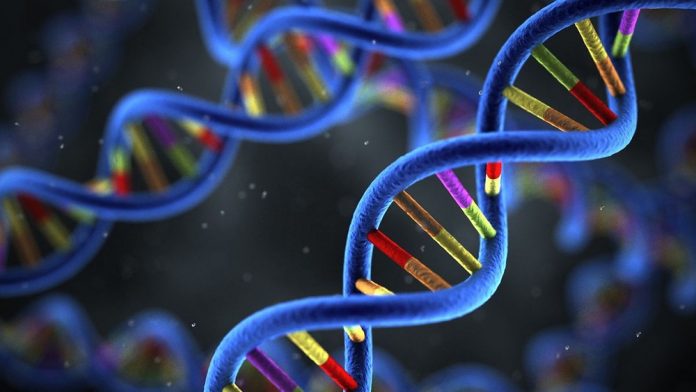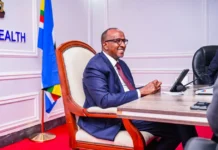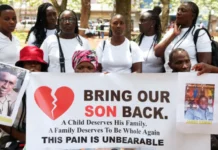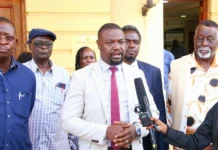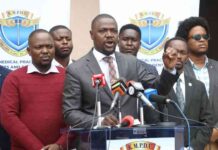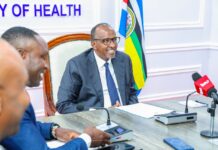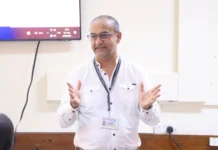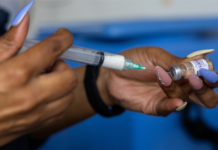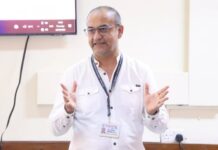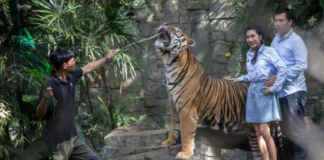Written By Ramadhan Kambi 📝
African Countries will get training about genomics infectious disease infections after the Kenya Medical Research Institute partnered with the World Health Organisation to realise the same.
The training aims at training scientists on how to track the different types of Covid-19 variants and how to treat them.
The First Sars- Cov-2 sequencing and bioinformatics course started at the KEMRI’s centre for Geographic medicine research Coast (CGMRC) and seeks to increase genome sequencing and Bioinformatics capacity not only regionally but throughout the African continent.
Authoriti4es said the objective is to increase the pool of genome sequencing and bioinformatics expertise among laboratory staff, scientists and programme heads in order to upscale scientific research in the important area in the region.

Prof Elijah Sangok Director of Research Capacity building and training at KEMRI said they have been in the forefront in the fight against Covid-19 not only in Kenya but the African region.
Speaking during the official opening of the First Sars- Cov-2 sequencing and bioinformatics course at the KEMRI Centre for Geographic medicine research -Coast Kilifi he said KEMRI has been researching on covid 19 variants or types using the expertise they have.
“One of the expertise that we have which we are not only supporting the Ministry of health and other African countries is the issue of tracking the covid variants of types of covid circulating in the country and in the world,” he said.
He said Covid-19 variants are changing as previously there was one called Delta, followed by Omicron now there is Sarp Omicron.
Sangok said as the variants keep on changing they have an impact on transmissibility as others are transmitted faster than others while on others the vaccine may not have an effect on them.

“Its very important to track these variants because of the changing nature of the Covid-19 every time,” he said.
He said they were training others from the African continent so that they can track variants from their areas because they have been receiving the variants from various countries to sequence them.
After training them, he said the other countries can still partner with KEMRI to track the variants.
Dr Damaris Matoke a Molecular Biologist at the Centre for Biotechnology Research and development who is also the coordinator for the training overseeing execution of the training in Kilifi, Nairobi and Kisumu KEMRI centres said the training was important because over time they have been doing genomic surveillance for other disease pathogens for other infectious diseases and non-communicable diseases.
Matoke said currently the genomic surveillance focuses on the Covid-19 virus and wants to try and understand and monitor how the virus has evolved over time and how it’s able to cause disease severity whereby many people contract the disease.
“But also trying to think through that do we need to change our diagnostic platform, does it mean we need to treat more people look for different regimes for treatment but more saw how to be able to put in contain measures,” she said.

She said genomic surveillance was very important because they were looking down at the RNA of the virus and coming up with the sequence of the virus and identifying areas that have changed over time called mutation and using that as a diagnosis mechanism or treatment.
The Coordinator said the training is a big milestone for Kenya as it shows the country is going to train other African countries.
“We are starting currently with Tanzania and Ethiopia and soon we are going to Erithtria Rwanda and Burundi it profiles Kenya highly because it showcases Kenya is able to build capacity for other countries not only local people in Kenya, Africa and beyond Africa if need be,” she said.
Dan Mogaka WHO Representative said they are trying to train other countries in Africa to have the capacity to have genomic sequencing.
he said the genomic sequencing was important because diseases have no boundaries that’s why they were building capacity for lab teams from different countries to have the knowledge of how the diseases spread.
Mogaka said with such training it will help in having a strategy of preventing the variants from spreading further.
“These training will help the local people because once the samples are taken from different health facilities we will be able to know how diseases spread and come up with preventive measures,” he said.
An example he said was Coronavirus which started with one case and spread out to many people but with such knowledge, it will be easier to prevent.
he said four are now being trained and there will be more others who will be brought after every two months.
Dr Joseph Mwangangi Director of Centre for Geographical Medicine research Coast Kilifi said as a country they have been working on different pathogens and characterise them.
based on the knowledge he said they have been able to sequence and get finer details of the disease.
“We are able to know which variant is available which one is taking responsibility in terms of transmission, this information has been very helpful because we think as a lab we are able to advise the government in terms of the circulating variants and variants of concern which is very important,” he said.
Email: uzalendonews24@gmail.com to submit your story.
SUBSCRIBE TO OUR YOUTUBE CHANNEL









